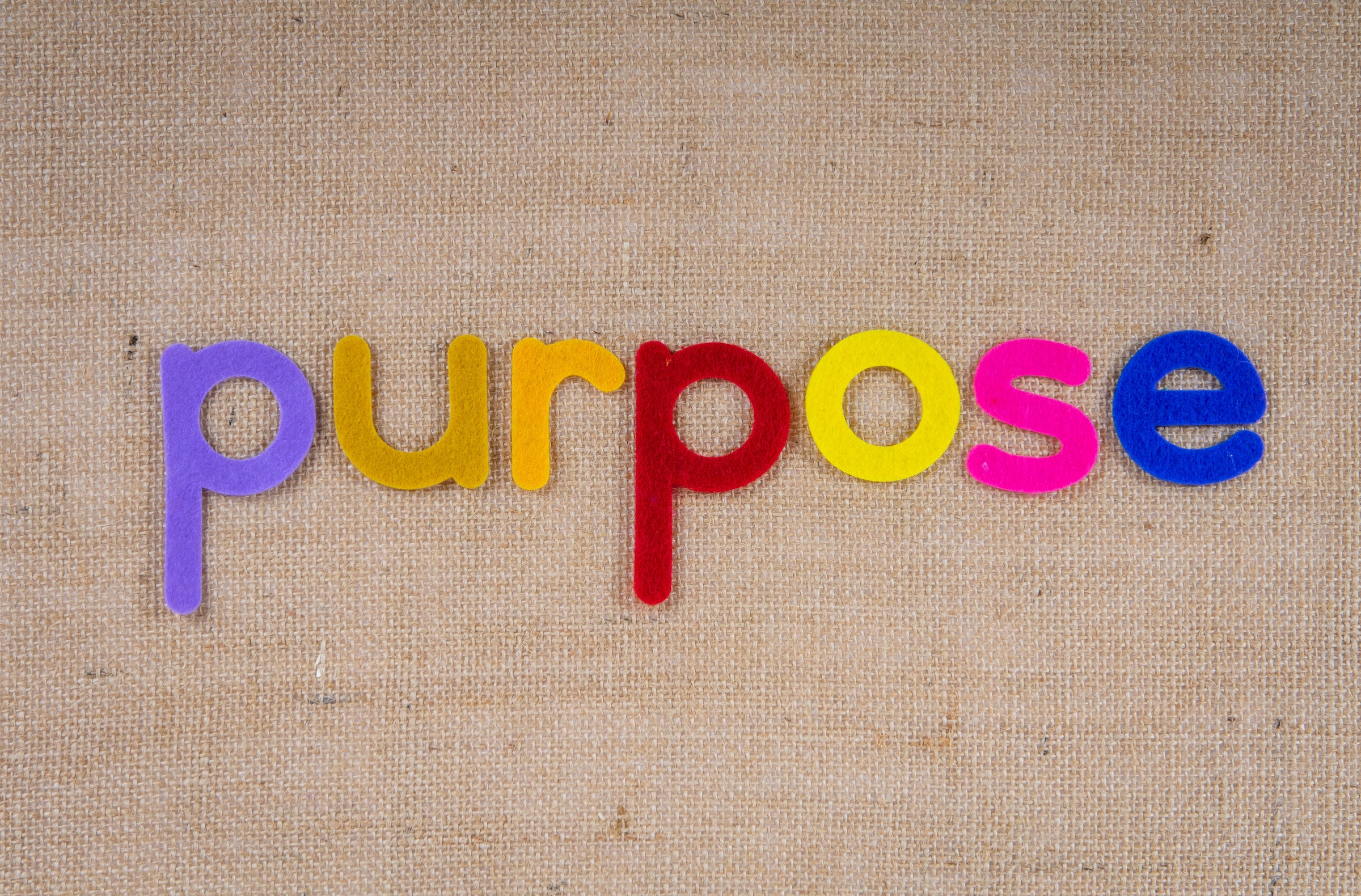
Finding Your Why (& Why Having a Purpose Helps)
What is my purpose in life? What makes me happy? Should I be living differently? Many of us have asked ourselves these questions at some point. We share why it’s worth asking and include tips to help you find the answers.
The quest to understand the purpose of our lives – and to have them be meaningful – is key to the human experience. And as expats we often have to reassess what brings us meaning! Indeed, what gives us purpose can change depending on our life stage and circumstances. Consider how differently we experience meaning from our childhood to our teens to early or late adulthood…
What is (my) purpose?
Stanford psychologist William Damon and colleagues describe purpose as “a stable and generalized intention to accomplish something that is at once meaningful to the self and of consequence to the world beyond the self”. In other words, purpose involves significant meaning and achieving an intention that reaches beyond us.
We are all different, of course, and your sense of purpose will be unique to you. For example, Simon found his purpose by acting on his deep love for animals. “I started taking care of animals I found on the street,” he says, “and finding homes for them. I’ve had to devote time and money to their care (and sacrifice my sleep to get up and feed them!), but at the end of the day, I value the way I feel about this work … particularly when I see the joy in their eyes.”
Sometimes, finding your purpose can also be achieved by shifting your mindset. This was the case for Christopher, a senior manager working on marketing who recovered his sense of meaning by reminding himself about the reasons why his job fulfils him. “I realized I needed to take the focus off me and my perceived problems, and I needed to change my perspective to see how what I did for a living helped fulfil the needs of others.”
And even our own experiences can bring us a sense of purpose. Andrea, originally from Brazil, moved to the United States with her family after 12 years of working in human resources in Italy. After a period in which she enjoyed having more time for her kids and for herself, she realised she wanted more. After hiring a coach to help her get clear on her purpose, it suddenly clicked: she wanted to coach expatriate women at the start of their journeys in their new countries.
Why finding your why matters…
There are some real health and psychological benefits to having a strong sense of purpose. For example:
- Having a sense of purpose may play an important role in coping with developmental crises (challenges we face over different stages of our lives) and it plays a role in building resilience.
- Another study suggests that having a purpose in life may be linked to living longer.
- Living a purposeful life is also a strong predictor of long-term happiness.
Tips for finding – and pursuing – your purpose
If you don’t have a strong sense of purpose, have gone through a life-shifting change, or are generally feeling lost, the quest to find it can feel overwhelming. (To find out how strong your sense of purpose is you may like to take this quiz.) Be-Do-Action goals, one of many strategies you can use to find your purpose, break down this seemingly big question into smaller parts (The Be-D0-Action strategy is a hot topic and we’ll write more about it in the future.)
- BE goals: imagining your best self
Who are you/who do you want to be? When are you at your best? What is your vision of your future self? What values are most important to you? Do you want to be a visionary leader, and/or a great parent, and/or someone who makes a difference to the environment? The answers to these questions point you to your purpose – which is based on what’s important to you.
- DO goals: implementing your BE goals
What do you need to learn or what qualities do you want to master? And importantly, how do these relate to your purpose? For example, you might want to be more positive or assertive because of your goal to be a visionary leader.
- ACTION goals: building specific habits
To achieve your “Do goals”, it’ll be necessary to take concrete steps. For example, to become more assertive, you might take a course, read up on the subject, or seek the support of a therapist.
The Be-Do-Action goals work together. Your “Be goals” are essentially the why behind your “Do” goals, and your Action goals reveal how to live your purpose. Notice your behaviors or actions and try to understand why you are doing what you are doing. Start asking: “Why am I acting this way?” “Why am I doing this?” “How does this action relate to my purpose?”
We also love the work of intercultural strategist Sundae Bean on this topic – her Expats on Purpose Manifesto is worth checking out!
Finding the purpose of your life is possible, no matter where you are right now. And if you haven’t found yours yet, hold on… it’s a process and often takes some exploring. The journey may be winding, but it’s certainly interesting… and well worth the effort.
With thanks to Maria Sifniou for her contribution to this article.
PHOTO: Magda Ehlers/Pexels
What gives your life meaning? We’d love to know! You may inspire others in the Expat Next community. Feel free also to share this article with a friend who is seeking their purpose.







I have always asked myself this question. Because of my religion background, I always believe that we are here for a reason, we have a mission to accomplish in life.
I have always felt that doing the best of me is the way to accomplish and meet my goals in life. Being there for whoever that needs me, including my family and friends. As years go by, I notice that my energy has been absorbed by the need of fulfilling others’ expectations on me, in which sometimes that even consumed myself so much that I lost myself.
It has been always difficult for me to pull myself away from people who need a lot from me because I thought it was right to do my best to help others, especially those who reach out for help from me. Recently, I noticed that I have to learn to let go, which is also a way of giving my love towards them. Letting them learning how to deal with their problems, instead of my fixing everyone’s problems in life.
In the past, I thought loving myself means you’re being selfish. This is something that I need to learn shifting my mindset. So, I’ll start making mini-goals in life, and in a long run, this will bring me to the place where I want to be.
Dear Abby
You are so right: giving to others is such a beautiful thing, but there is a threshold where we find that we are over-giving. Your words are a reminder that letting go can be a beautiful gift to oneself – as well as an opportunity to question the patterns we engage in, and to shift our mind to focus on finding our purpose.
Thank you for sharing this.
Vivian
I found this article extremely interesting because it reminded me of the Japanese concept of “Ikigai”. This philosophy translates to “reason for being” but it can also be interpreted as purpose, in which you combine what you love, what you’re good at, what you can be paid for, and what the world needs. For some people, this is very hard to find. Your advice illustrates these qualities in a very clear way and it can help readers define specific habits and goals to achieve a more purposeful life. Thank you!
Dear Sara
And thank YOU for sharing this insight – and about Ikigai, which really resonates. What a beautiful meeting of values, aspirations and real-world application!
Regards
Vivian